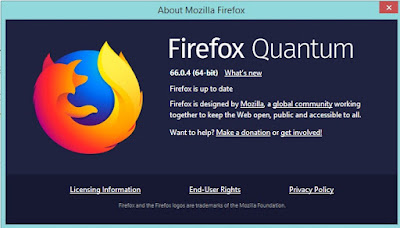A highest cyber security company has witnessed a significant increase in malware attacks against users trying to download Game of Thrones's final season.
Kaspersky Lab found in a report that many users who were trying to download seasonal episodes were infected with malware or malicious software.
Each episode of Season 8 of HBO's Game of Thrines, as this is the end of the fantasy medieval epic after almost a decade, was anticipated by fans in many parts of the world, including the Philippines.
Researchers from the Kaspersky Lab detected approximately 3,000 assault attempts a day and these vary according to episode.
These scamming events also occurred during the Avengers: Endgame premiere.
Up to date your System: We encourage our clients to allow automatic updates on their Windows computers in addition to running updates for programs like Adobe and Java. Many of these updates include security patches that fill the security holes in the Windows system. They always seem to come up at the wrong time. Simply update it when you're about to leave the System.
Back up your System: Regular and regular backup helps you to keep your data-secure in case a virus or infection infects the system. It always backups important files on a cloud drive or external hard drive regularly. There are three fundamental backup features: external hard disk, online backup or cloud storage. Use a service such as Google Drive to continuously back up your files to the cloud. Free for up to 5 GB of data The price is correct.
Use a pop-up blocker: Cyber criminals or developers with the core intent of spreading malicious programs use pop Ups and ads on websites as the most popular tactics. So, avoid clicking on unspecified websites, software offers, pop - ups, etc and install a powerful Chrome, Mozilla and IE ad blocker.
Installation of third parties: Try to avoid downloading freeware sites as they usually install software packages that have an installer.
Install an anti - virus/anti-Malware software: The use of advanced antivirus software that monitors your system will protect you from common malware and other risks of security. We recommend that you install an antivirus like Malwarebytes or a good Malware Removal Tool like Mcafee.
This Simple Tips Protect Your System life Time.
Kaspersky Lab found in a report that many users who were trying to download seasonal episodes were infected with malware or malicious software.
Each episode of Season 8 of HBO's Game of Thrines, as this is the end of the fantasy medieval epic after almost a decade, was anticipated by fans in many parts of the world, including the Philippines.
Researchers from the Kaspersky Lab detected approximately 3,000 assault attempts a day and these vary according to episode.
" A long line of attacks targeting users who tried to download the newly released episode was accompanying the premiere of each episode. The fans received malware disguised behind the show name rather than getting the latest episode, "the report said."
In the third episode called "The Long Night" almost 1,500 users attacked and triggered the greatest number of detected attempts.
After the final episode "The Iron Throne" was released, the lowest number of attacks ranged from 500 to 1,000 with fewer than 500 victims.
"The average daily number of assaults by malware disguised as Game of Thrones attacks by Kaspersky laboratory researchers was around 300-400. For the three to four days after each new episode: a three to four-fold increase in malicious activities, this number has jumped up to around 1,200, "said Kaspersky researchers."
These scamming events also occurred during the Avengers: Endgame premiere.
Streaming free websites were also referred to as ' another vector to attack, ' as they were ' designed to extract sensitive data from users. '
The researchers explained the similarities between the current and recent Avengers films.
"We see common TTPs across phishing websites, where scammers try to rob the details of their users by promising a pirated film before the official debut. We believe that some threat actors are the methodological category for fans of popular films and TV productions, which dynamically adjust the programs according to pop-cultural events, "said Tatyana Sidorina, a Kaspersky Lab security researcher."
How to keep your computer safe from hackers and Malware:
If you follow these simple tips, it is easy to keep your computer malware free.Up to date your System: We encourage our clients to allow automatic updates on their Windows computers in addition to running updates for programs like Adobe and Java. Many of these updates include security patches that fill the security holes in the Windows system. They always seem to come up at the wrong time. Simply update it when you're about to leave the System.
Back up your System: Regular and regular backup helps you to keep your data-secure in case a virus or infection infects the system. It always backups important files on a cloud drive or external hard drive regularly. There are three fundamental backup features: external hard disk, online backup or cloud storage. Use a service such as Google Drive to continuously back up your files to the cloud. Free for up to 5 GB of data The price is correct.
Use a pop-up blocker: Cyber criminals or developers with the core intent of spreading malicious programs use pop Ups and ads on websites as the most popular tactics. So, avoid clicking on unspecified websites, software offers, pop - ups, etc and install a powerful Chrome, Mozilla and IE ad blocker.
Installation of third parties: Try to avoid downloading freeware sites as they usually install software packages that have an installer.
Install an anti - virus/anti-Malware software: The use of advanced antivirus software that monitors your system will protect you from common malware and other risks of security. We recommend that you install an antivirus like Malwarebytes or a good Malware Removal Tool like Mcafee.
This Simple Tips Protect Your System life Time.












